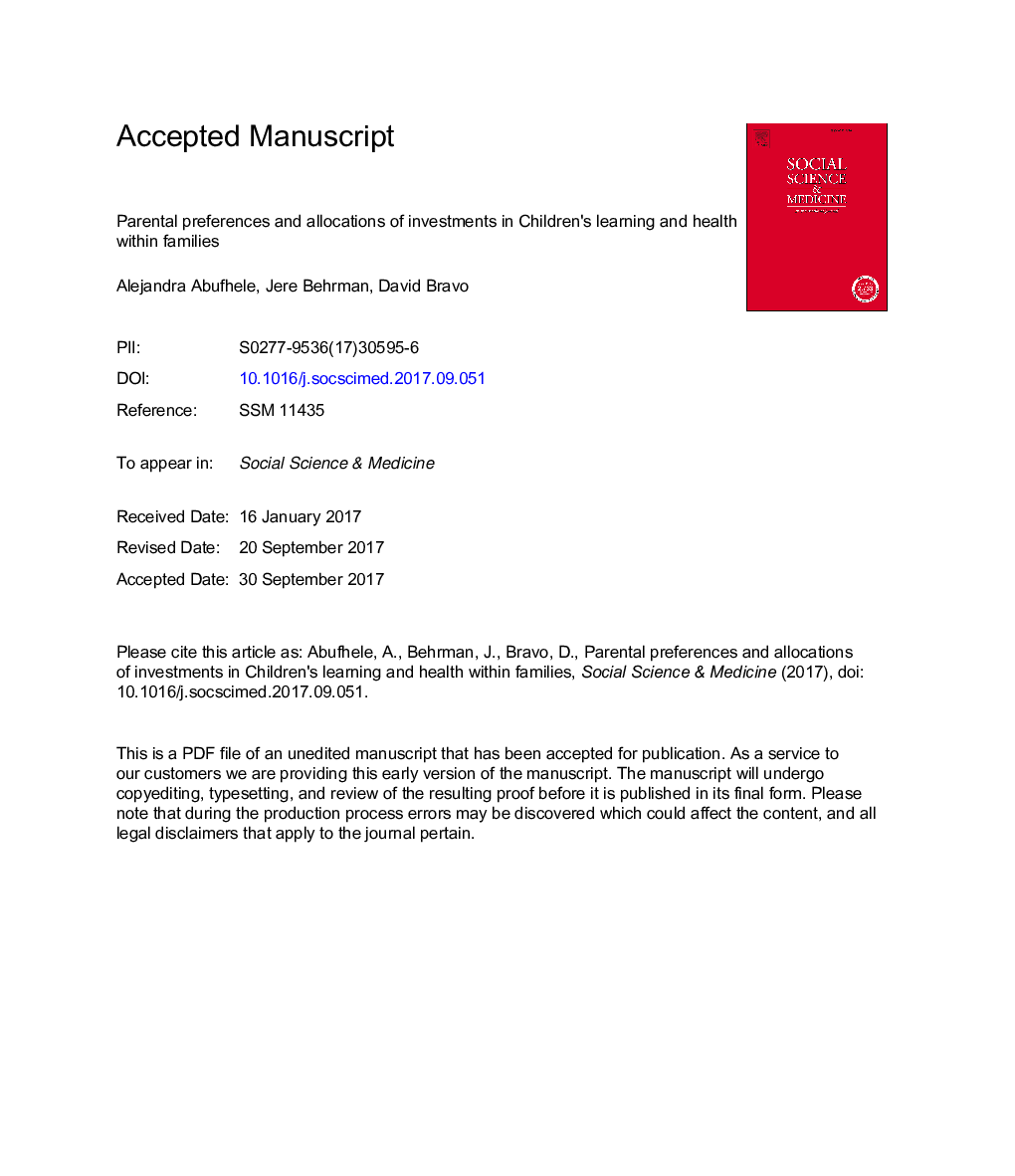| Article ID | Journal | Published Year | Pages | File Type |
|---|---|---|---|---|
| 7328972 | Social Science & Medicine | 2017 | 40 Pages |
Abstract
This paper gives new empirical evidence related to these questions. We examine how parental investments affecting child education and health respond to initial endowment differences between twins within families, as represented by birth weight differences, and how parental preference tradeoffs and therefore parental investment strategies vary between families with different maternal education. Using the separable earnings-transfers model (Behrman et al., 1982), we first illustrate that preference differences may make a considerable difference in the ratios of health and learning differentials between siblings - up to 30% in the simulations that we provide. Using a sample of 2000 twins, collected in the 2012 wave of the Early Childhood Longitudinal Survey for Chile, we find that preferences are not at the extreme of pure compensatory investments to offset endowment inequalities among siblings nor at the extreme of pure reinforcement to favor the better-endowed child with no concern about inequality. Instead, they are neutral, so that parental investments do not change the inequality among children due to endowment differentials. We also find that there are not significant preference differences between families with low- and high-educated mothers. Our estimates are consistent with previous empirical evidence that finds that parents do not invest differentially within twins.
Related Topics
Health Sciences
Medicine and Dentistry
Public Health and Health Policy
Authors
Alejandra Abufhele, Jere Behrman, David Bravo,
